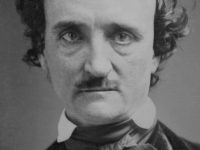C is quirky, flawed, and an enormous success – Dennis Ritchie
On October 12, 2011, computer scientist Dennis Ritchie, who designed the UNIX operating system as well as the C programming language, passed away. Thanks to his contributions, computing made a huge leap forward and enabled real-time processing and multi-threading. Dennis Ritchie was born on September 9, 1941, in Bronxville, New York as son of Alistair E. Ritchie, a longtime Bell Labs scientist working on switching circuit theory. Dennis Ritchie graduated from Harvard…
Read more











